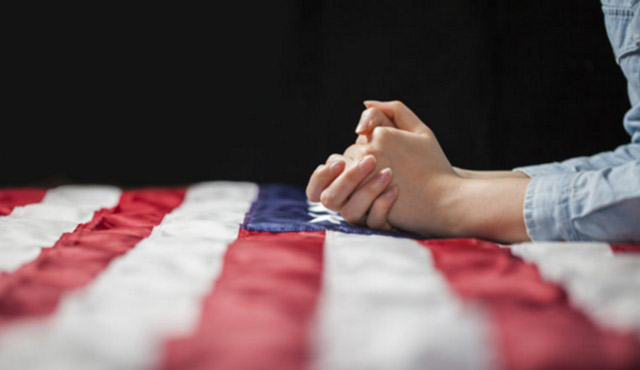Dear brothers and sisters in Christ,
I am happy to share with you a recent column from my good friend, Cardinal Donald Wuerl, of the Archdiocese of Washington D.C. Cardinal Wuerl was among several cardinals and archbishops who appeared earlier this month via video for our evening celebration and dinner for Earthquake Relief for the devastated town of Amatrice in Italy. With a background in catechetics and theology, he teaches here very clearly on our responsibilities as Catholics and citizens in this challenging election cycle. His reflection includes a section from the United States Bishops publication entitled Faithful Citizenship.
Practicing faithful citizenship
What is the responsibility of the Catholic citizen? Pope Francis reminds us that we need to participate in the civic process for the common good, “Sometimes we hear: a good Catholic is not interested in politics. This is not true: good Catholics immerse themselves in politics by offering the best of themselves so that the leader can govern.”
Democratic civil society, if it is to remain just and free and attain the common good – and not descend into the self-interested and arbitrary rule of the powerful, where law is a matter of might rather than right – depends upon a virtuous and informed citizenry. At our archdiocesan website, you will find resources that look at this coming election from this perspective of virtue, the common good and Catholic social teaching.
In particular, the U.S. bishops stress in their document entitled Forming Consciences for Faithful Citizenship, “Catholic teaching challenges voters and candidates, citizens and elected officials, to consider the moral and ethical dimensions of public policy issues” (92). Giving voice to critical ethical principles, the bishops hope this guidance will assist voters to make their civic decisions consistent with good conscience and the objective moral order.
“Not all issues are equal,” the bishops affirm in addressing various issues of different moral weight and urgency. “Some involve intrinsically evil acts, which can never be approved,” such as the grave attacks on human life presented by abortion, euthanasia and assisted suicide. “Others involve affirmative obligations to seek the common good. These and similar goals can help voters and candidates act on ethical principles rather than particular interests and partisan allegiances” (Id.).
We can think of our participation in the common good as the practical application of the teaching: “You shall love the Lord, your God, with all your heart, with all your soul and with all your mind. This is the greatest and the first commandment. The second is like it: You shall love your neighbor as yourself” (Matthew 22:37-40). Any effort to build a good and just society can be undertaken only with these dual obligations to God and neighbor in mind.
At the core of the Church’s social teaching is the simple appreciation that we are all brothers and sisters, children of the same God. We each possess an inherent human dignity and we are obligated to respect and protect that dignity of every human person. The more vulnerable and threatened they are, the more our responsibility toward them grows. We have a personal responsibility for concrete actions that work toward the shaping of a society in which there will be justice, freedom and peace.
One indispensable component to human relations, including our involvement in civic affairs, is truth and trust in the information we receive. A free society cannot exist without citizens being informed fully and accurately so that they know the true facts of what they are making decisions about. And every election season reminds us of how great the influence and power of the press is in shaping public opinion, which raises the imperative of basic journalistic ethics and fundamental fairness.
What is distressing is how sometimes the news media selectively report only some of the facts or even spin stories to fit a predetermined narrative and particular viewpoint. We could cite many examples of this just with respect to reporting about the Church and what we stand for in promoting human life, dignity, marriage and family.
How timely it is then that the special prayer intention of Pope Francis this month is for journalists. At the very beginning of his pontificate, he met with media representatives and reminded them, “Your work calls for careful preparation, sensitivity and experience, like so many other professions, but it also demands a particular concern for what is true, good and beautiful.” More recently, the Holy Father met with a group of journalists and reflected that they are called to “improve the society in which we live: To love the truth, to embody professionalism and to respect human dignity.”
The Faithful Citizenship guidance and other material should help all of us to better reflect on what we are reading and hearing about issues and candidates as the information is presented through the lens and filter of media sources which may have their own agenda. Being vigilant to the completeness, accuracy and truthfulness of what is being reported, and correcting it when necessary in our personal relations with others, is another way we as citizens can participate in promoting the common good and practice fruitful engagement in public life. This is one of the reasons the archdiocese is engaged in social media and has the Catholic Standard and El Pregonero newspapers.
Furthermore, our responsibility does not end with the election, no matter how much we might want to put it all behind us. To remain engaged with our elected officials, calling them to accountability on behalf of the truth and for the common good is also the responsibility of faithful citizenship.

